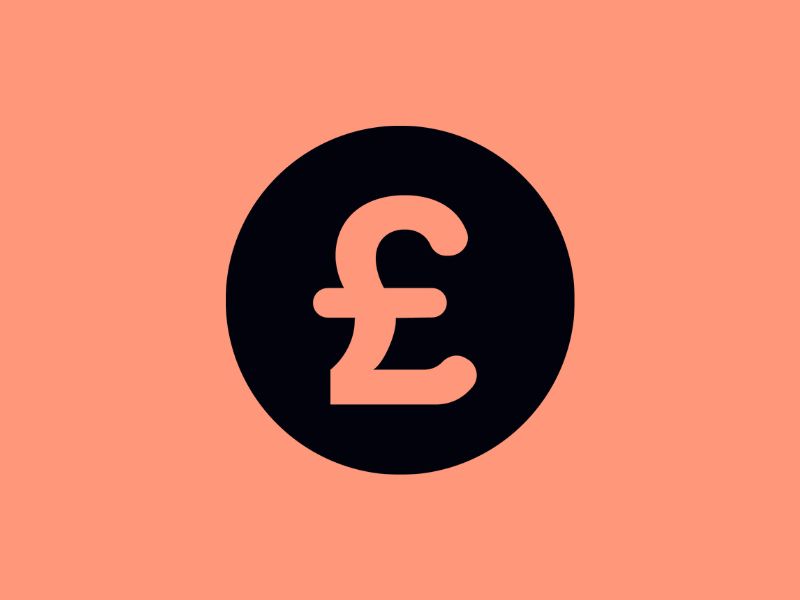
Does having multiple bank accounts affect your credit score?
Opening and managing multiple bank accounts could affect your credit score. Here’s everything you need to know.
In short . . .
Opening multiple bank accounts doesn’t always harm credit, but hard checks and high overdraft use can. Space out applications, manage overdrafts, and monitor your credit report to stay on track.
What's in this article
The direct effect of multiple bank accounts on credit scoresDo all banks perform hard searches when you open an account?Does taking out multiple overdrafts affect your credit score?Does switching banks affect your credit score?Best practices for managing multiple bank accountsSumming up: Navigating multiple bank accounts and credit scoresRelated FAQsOpening and having multiple bank accounts may affect your credit score, depending on whether the bank does a soft or hard search to verify your personal information and assess your credit report. And if you also open multiple overdrafts, how you manage them can potentially influence your score too.
Let’s look at which credit checks can impact credit scores – and how. We’ll also take you over when banks might use these checks, the potential effects of multiple overdrafts on your credit score, and the best practices for managing multiple bank accounts.
The direct effect of multiple bank accounts on credit scores
Let’s clear up the difference between a hard and soft search:
Hard searches
Some banks perform a hard search of your credit report when you apply, especially if you request overdraft access with your new account (as overdrafts are a form of lending). Hard searches give the bank full visibility of your report, including:
Your repayment history across credit lines.
Previous addresses.
Financial associations (e.g., if you have joint mortgages or loans with someone else).
Public court records.
Each hard search is documented on your report for other lenders to view. Too many of these in a short period can negatively impact your credit score and ultimately your access to credit in the future. As such, regularly applying for new bank accounts with institutions that perform hard searches can – depending on the time frame – cumulatively lower your credit score, even if the impact of a single check is minor.
Sometimes, a hard search will only lower your score by a few points, and your score will rebound with good credit behaviour (e.g., consistently making repayments). But if opening multiple bank accounts is part of a trend of applying for more credit in general – including through overdrafts, credit cards, and loans – this could have a cumulative impact on your score.
Soft searches
Not all banks perform hard searches when you open an account – some only perform soft searches.
Soft searches return limited items from your credit report without impacting your credit score. Banks conduct soft searches when you apply for a new account, mainly for identity confirmation purposes. They show:
Public records like County Court Judgments (CCJs).
Insolvency events such as bankruptcies or Individual Voluntary Arrangements (IVAs).
Your Electoral Roll records.
The only instance where a soft search would impact your credit score is if it’s made by a debt collector.
Monitor checks against your file with the most detailed credit report out there. Start your 7-day free trial with Checkmyfile today. Then it’s a monthly subscription – cancel online anytime.
Do all banks perform hard searches when you open an account?
When you set up a new account, some banks run hard searches, regardless of whether you request additional services (e.g., overdrafts or credit cards). These checks allow them to analyse your full borrowing histories, court records, and financial associations.
Other banks use soft searches for current accounts without overdrafts, but if you request lending services (like arranged overdraft allowances), they’ll likely perform a hard search.
So, while not all banks routinely perform hard searches for new current accounts, some do as standard policy. You can likely find out the bank's policy by reading the terms and conditions you’re presented with before opening the account, or by contacting the bank directly and asking.
Does taking out multiple overdrafts affect your credit score?
Applying for, and using, an overdraft affects your credit score, as it’s considered a form of borrowing. How you manage your overdraft – whether you frequently exceed your limit or regularly clear it – can influence lenders' perception of your ability to make repayments.
If you have several accounts with overdrafts, the cumulative usage and management of these can have a more pronounced effect on your score. High credit utilisation (how much credit you’re using versus how much you can access) across multiple overdrafts may signal potential financial distress to lenders as it could be perceived that you are overly reliant on credit. Credit utilisation is also taken into account when calculating your Checkmyfile credit score.
An example of behaviour that could negatively impact your credit score is maxing out multiple overdrafts in sequence across your bank accounts. This significantly increases your credit utilisation, which could negatively impact your credit score.
On the flip side, responsibly managing an overdraft can improve your credit score. Demonstrating that you can remain within your overdraft limit and repay the borrowed amount signals that you’re dependable as a borrower.
Does switching banks affect your credit score?
Switching banks can affect your credit score if the new bank(s) perform hard searches (they’re the checks that appear on your credit report and may impact your credit score, unlike soft searches). Switching banks is broadly similar to applying for a new account – except your old account will close, and any balances, certain payments (like your salary), and direct debits will be migrated to the new one. When you apply for an account at a new bank, it will perform either a soft search or a hard search depending on its policies (you can ask to inspect a bank’s policies before submitting your application).
While a single hard search might slightly and temporarily reduce your credit score due to perceived risk by lenders, the real concern arises from triggering multiple hard searches in a short time frame. This can happen when you do either of the following in a short timespan:
Submit numerous applications. This means multiple hard searches will be recorded on your credit report in a short period, which may signal potential financial instability and consequently affect your credit score.
Open and close multiple accounts. Sometimes, people might open and close accounts with various banks to collect cash signup bonuses, take advantage of other promotions, earn enhanced interest rates for a period, and more. While this can earn you extra rewards, it can impact your credit score if too many hard searches are involved in a short timeframe.
However, you can mitigate dips in your credit score by maintaining positive credit behaviour, such as consistently making on-time payments. In general, though, limiting the number of bank accounts you apply for in a short time frame can help reduce any negative impact to your credit score. Remember, your credit score will typically bounce back from hard searches, but the timeframe is variable and depends on your ongoing credit behaviour. It generally takes between one and two years (depending on the CRA used to run the search) for hard searches to disappear completely from your credit report.
Best practices for managing multiple bank accounts
It’s certainly possible to manage multiple bank accounts without negatively affecting your credit score or ability to get credit. Here's a rundown of how to manage your banking setup without adversely affecting your credit score:
Be conscious of timing: Planning to apply for a loan or mortgage soon? If possible, it might be best to avoid opening new accounts and applying for overdrafts until your application goes through. Spacing out your applications can help avoid a flurry of hard searches, which lenders might not view favourably.
Choose a new bank wisely: Not all banks perform hard searches, and you can find out which ones do by checking their terms and conditions before applying. The terms and conditions should state whether a hard search is required.
Handle overdrafts with care: If you do opt for an overdraft, keeping the balance manageable and periodically reassessing your need for it can signal to lenders that you're a potentially more reliable borrower.
Consider whether you need to apply: Before switching to a different bank, it’s best to make sure you really need to, especially if opening a new account will involve a hard search. Reducing the number of hard searches on your credit report can keep your score from unnecessary dips, which is particularly important if you’ll be in the market for credit soon (e.g., you’re looking to take out a mortgage).
Manage funds in a structured way: Having multiple separate accounts, such as high-interest savings accounts, current accounts for day-to-day personal finances, and so on, is perfectly reasonable. But it’s a good idea to define boundaries for how you’ll use each account.
Stay informed: Monitoring your credit report over time can help you demystify the impact of new accounts or enquiries, maintain your credit health, and make more informed decisions.
Summing up: Navigating multiple bank accounts and credit scores
Opening multiple bank accounts can affect your credit score and add hard searches to your credit report, but the impact on your ability to get credit varies. As a rule of thumb, opening too many new bank accounts within a short period of time isn’t advisable if you plan to apply for credit soon.
If you open multiple bank accounts, it’s essential to carefully manage any credit repayments to ensure they’re on time. Dipping into multiple overdrafts across multiple bank accounts could signal financial distress or mismanagement to lenders.
Before opening a new account, it’s important to assess the short and long-term impacts of any hard searches. While they might not greatly impact your credit score, they’ll appear on your credit report for up to two years.
Your Checkmyfile credit report provides data from all three credit reference agencies – Experian, Equifax, and TransUnion – so you’ll know if a bank performed a hard search.
Related FAQs
Q: Will opening a new bank account immediately lower my credit score?
A: Not necessarily. It depends if the bank performs a hard search. These could temporarily lower your score, while soft searches won't normally affect it. Different banks have different policies for performing credit checks. You should be able to check this in the bank account T&Cs.
Q: Can I have multiple bank accounts without harming my credit?
A: Absolutely. The key is how you manage them, especially when it comes to overdrafts and the timing of opening new accounts in relation to applying for loans or credit. As applying for a bank account sometimes involves a hard search, it might be worth holding off if you anticipate applying for a loan or mortgage within the next few months to a year. While the hard search itself remains on your report for up to two years, it usually only has a short-term impact on your credit score.
Q: How often should I check my credit score if I have multiple bank accounts?
A: Regularly monitoring your credit score is good practice, especially if you actively manage multiple accounts. Checking your score regularly can help you understand how your credit health changes over time.



